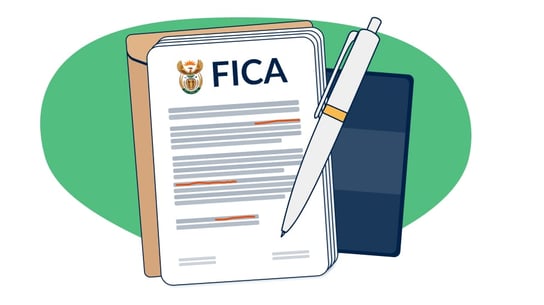The Financial Intelligence Centre (FIC) recently issued a media release regarding amendments to the Financial Intelligence Centre Act (FICA), particularly with regard to Cash Threshold Reporting (CTR), and the Money Laundering and Terrorist Financing Control Regulations (MLTFC Regulations) falling under FICA’s scope. The release followed the publishing of the amended MLTFC Regulations on 14 October 2022 and which will come into force on 14 November 2022.
 Cash Threshold Reporting is required to be undertaken by both Accountable and Reporting Institutions (AIs and RIs) listed in Schedule 1 and Schedule 3 of FICA, respectively. The reasoning behind reporting cash transactions is that, as a medium of exchange, it is highly favoured by money launderers due to its inherent un-traceability, efficiency of use, difficulty in identifying its true source and its ability to convert its illicit origins into a legitimate asset ie: a vehicle or a property.
Cash Threshold Reporting is required to be undertaken by both Accountable and Reporting Institutions (AIs and RIs) listed in Schedule 1 and Schedule 3 of FICA, respectively. The reasoning behind reporting cash transactions is that, as a medium of exchange, it is highly favoured by money launderers due to its inherent un-traceability, efficiency of use, difficulty in identifying its true source and its ability to convert its illicit origins into a legitimate asset ie: a vehicle or a property.
The primary amendments are:
-
The monetary threshold has been increased for cash reporting from R24 999 and above to R49 999 and above as a single transaction only
-
Extending the reporting period deadline from 2 to 3 business days from the time of becoming aware of the cash transaction
-
The revocation of submitting Cash Threshold Report Aggregation (CTRA) for AIs and RIs, which is where a report is made to the FIC which details an amalgam of multiple cash transactions exceeding the prescribed amount in a particular period rather than a single, lump sum cash transaction
One of the purposes behind these amendments appears to be in assisting in easing the FIC’s administrative burden in analysing CTRs and CTRAs. As the media release mentions, in the 2021/2022 financial year, the FIC received more than 4.5 million of these reports.
In addition, with South Africa’s potential greylisting decision being made in early 2023, it could also be argued that the FIC are redirecting their focus to arguably more pressing issues identified by the Financial Action Task Force (FATF) concerning the prosecution, asset forfeiture and general law enforcement in combating money laundering and terrorist financing. For a more detailed discussion and analysis on greylisting, please refer to our article on the potential effects of South Africa being greylisted as well as how recent legislative amendments are aiming to tackle greylisting.
What should you do next?
Practically speaking, and based on the above amendments, we would recommend updating your Risk Management and Compliance Programme (RMCP) for alignment purposes in addition to communicating with and training your employees on these updates within your RMCP.